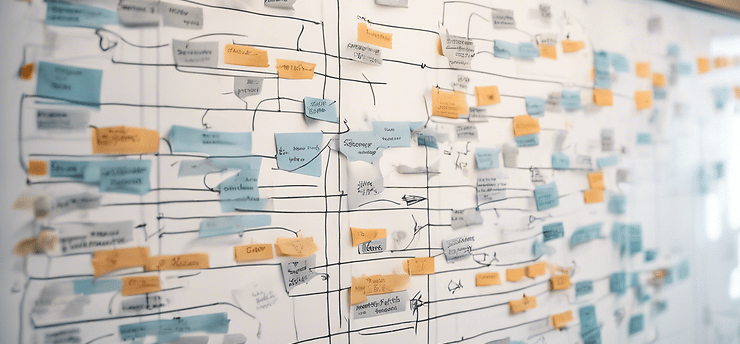Optimizing Project Efficiency: Business Strategy Tips for Subcontractors
Project time, quality, safety and cost success in construction is dependent on subcontractors and the people that work for the subcontractors. Here are a few things to consider in defining the project.
Rob Barron, J Heffner
1/30/20251 min read


Subcontractors play a crucial role in the success of major projects, working alongside various stakeholders to bring projects to fruition. Maximizing project efficiency is key to meeting deadlines, staying within budget, and ultimately satisfying clients. To help subcontractors optimize their efficiency and enhance their business strategy, here are some valuable tips to consider.
Effective Communication: Clear and open communication is essential in any project. Ensure that you maintain regular communication with the project manager, other subcontractors, and suppliers. This will help to prevent misunderstandings, facilitate problem-solving, and keep the project on track.
Detailed Planning: Before starting any project, take the time to create a detailed plan outlining tasks, timelines, and resource requirements. Having a clear roadmap will help you stay organized, prioritize tasks, and identify potential risks before they escalate.
Utilize Technology: Embrace technology tools that can streamline your processes and improve efficiency. Project management software, scheduling tools, and communication platforms can help you stay organized, collaborate effectively, and track progress in real-time.
Quality Control: Maintaining high standards of workmanship is crucial for the success of any project. Implement quality control measures to ensure that work meets specifications, complies with regulations, and satisfies client expectations.
Risk Management: Identify potential risks early on and develop strategies to mitigate them. Whether it's supply chain disruptions, weather delays, or unexpected site conditions, being prepared to handle challenges can prevent costly setbacks and keep the project on course.
Collaborate with Stakeholders: Foster positive relationships with other subcontractors, suppliers, and project stakeholders. Collaborating effectively with others can lead to smoother workflows, improved communication, and ultimately, better project outcomes.
Continuous Improvement: Regularly evaluate your performance and seek feedback from clients and colleagues. Identify areas for improvement, invest in training and development opportunities, and strive to enhance your skills and capabilities. By implementing these tips, subcontractors can enhance their project efficiency, deliver quality work, and build a strong reputation in the industry. Remember, success in project management is not just about completing tasks—it's about working smart, adapting to challenges, and continuously striving for excellence.
